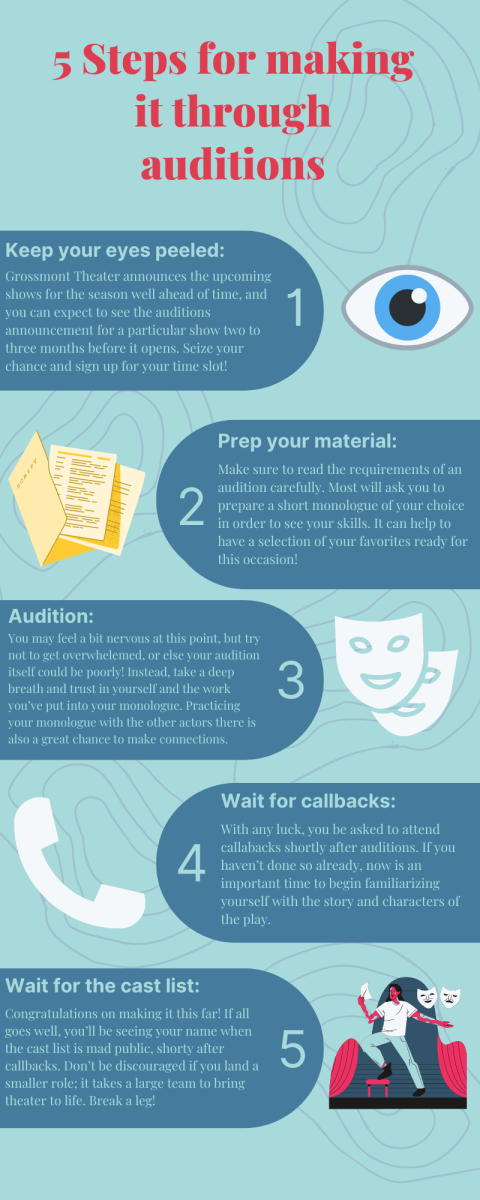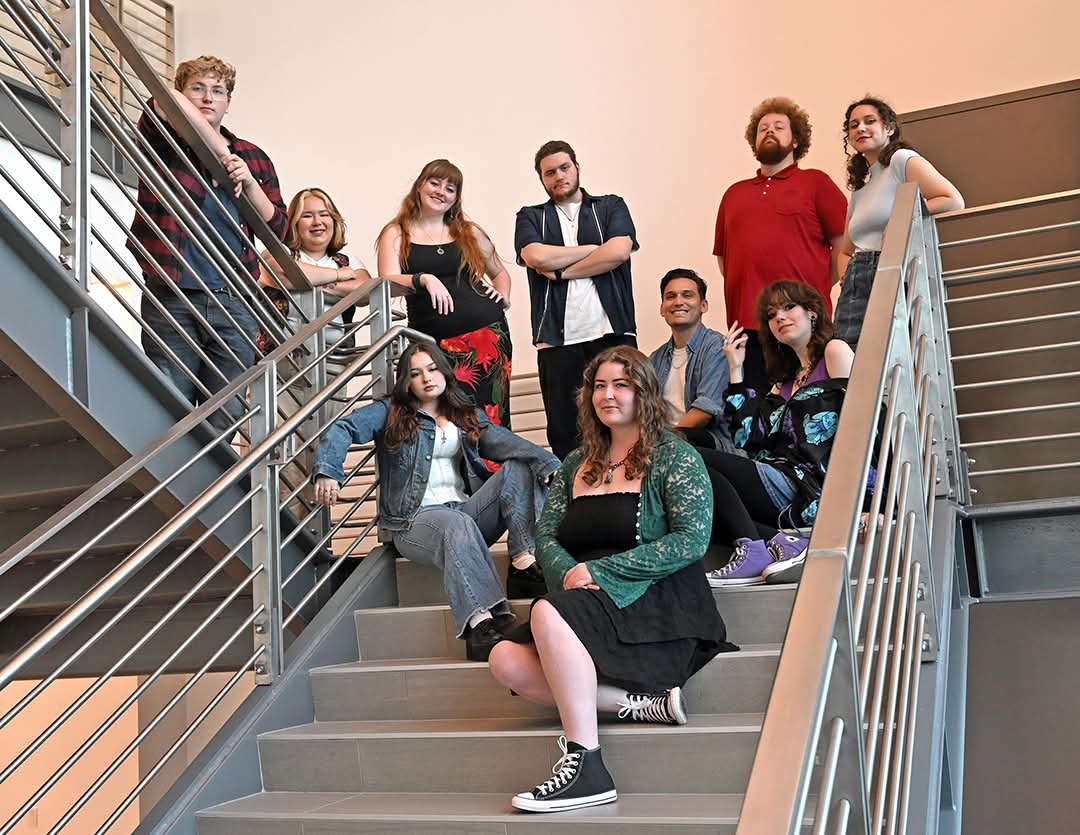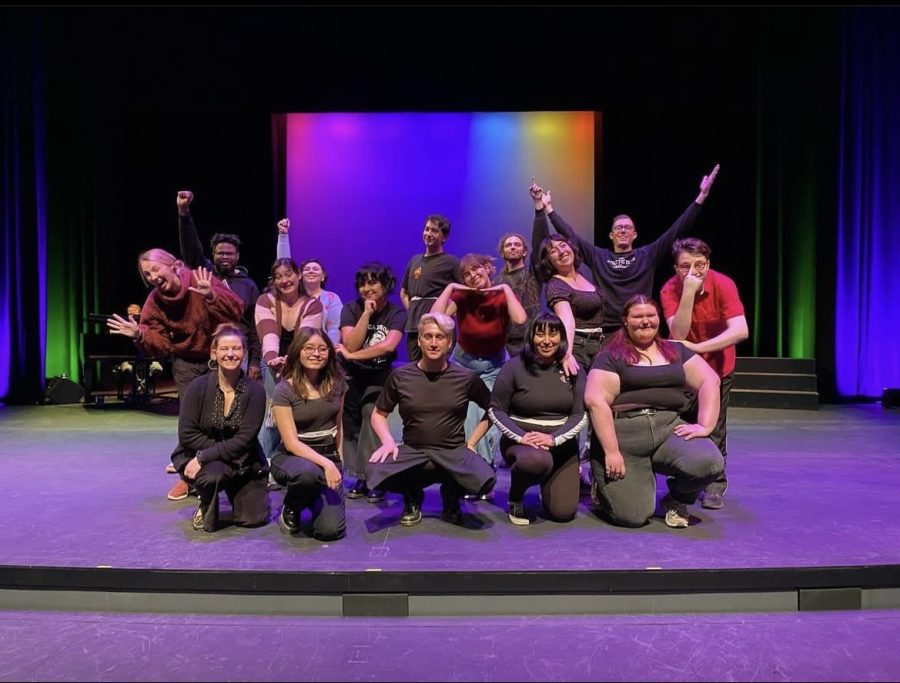The tension could be felt in the air as the first few students gathered outside Room 241. Some actors quietly recited their monologues to themselves or their peers, while others merely fidget nervously. This was the atmosphere on the night of March 18 as student actors waited to be called in to audition for the Grossmont Theater production of Our Town.
Students were given over three weeks to prepare for the auditions after the announcement was made that the production was seeking actors. Interested actors were asked to choose and perform a one-minute monologue, and sign up for one of the night’s many time slots. These monologues were performed in front of the director of Our Town, Walter Allen Bennett. The length of an audition itself can vary depending on the amount of feedback and information a director gives the auditioning performer.
“Generally, how I prepare for an audition is I first try to see what the audition’s requirements are and I look through my arsenal of monologues that I have prepared,” said auditioning actor Jacob Human. “I go over them and see which one best suits what character I want to go for in that play, and if I’m not satisfied with any of them, I try and look for something that would fit.”
Attempting to memorize a monologue may be intimidating to first time auditionees, but the experience will help prepare the actor for the task of memorizing lines for the show. One experienced student actor, Ryan Robbins, explained that going over a script multiple times and reading aloud helps.
“With memorization, one thing that really helps me is movement,” said Robbins. “When there is blocking and movement on stage, and I can attach that to the lines, that always helps it stick better in my mind.”
After an audition, an actor has to wait to hear from a production’s team for a callback. This next step indicates interest from the director or the show team, and gives the actor a more focused opportunity to read and attempt reading for different parts in a play. Still, getting a callback does not guarantee making it into the play nor any particular role.
Robbins explained the difference between auditions and callbacks in the following way: “Auditions are a chance for the director to get to know you with your own material, that you picked and feel connected with. Callbacks are more about the director getting to know you more, but within the context of the actual show with the material and its characters. They’re very similar, but they’re also very different in theory and in practice.”
During callbacks for Our Town, students were encouraged to read for several different parts, which helped the director compare and identify the best fits for each role. After callbacks, students waited in nervous anticipation for the cast to be announced.
A cast list will often create a cause for celebration for some auditionees, and disappointment for others. However, many students at the audition for Our Town were coming from a history of many auditions, theater classes and small ensemble roles before seeing their biggest casting moments. With this in mind, one can see that auditions are a unique opportunity to leave one’s comfort zone and take a worthwhile risk.








